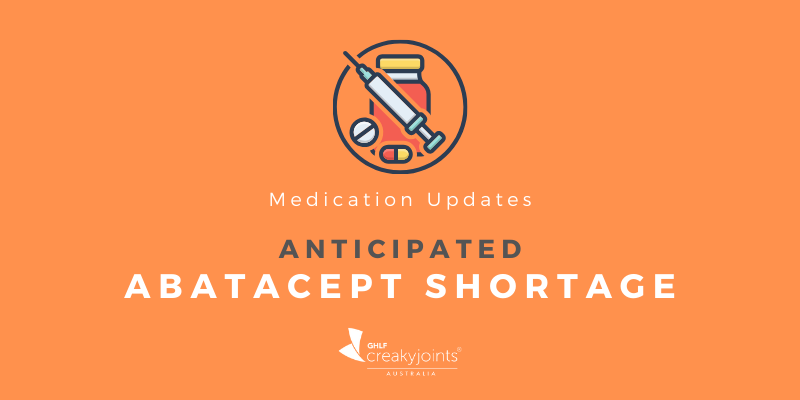TNFi Biologics (Adalimumab, Certolizumab, Etanercept, Golimumab, Infliximab)
TNFi biologic medications work by targeting a protein called tumour necrosis factor (TNF) and blocking it at the source. TNF acts as a messenger that sends signals through your body, eventually leading to inflammation that causes swelling, pain, and stiffness. By inhibiting, or stopping, TNF, these medications can cool down your immune response and reduce inflammation. That’s why they’re often called TNF inhibitors (or TNFi).
Your rheumatologist may prescribe a biologic if your previous DMARD therapy was ineffective or if you cannot take conventional synthetic DMARDs. Personal considerations such as comorbidities and side effects may make TNFi therapy (often with the addition of methotrexate) the best option.
For individuals with specific types of inflammatory (or autoimmune) arthritis, TNFi biologics could be an addition to your DMARD monotherapy or double therapy or used alone. Your rheumatologist will determine which option is best for you based on your personal medical history and current Pharmaceutical Benefits Scheme (PBS) regulations.
As with all biologic medications, you may be able to give yourself a TNFi biologic, via subcutaneous injections, at home (known as “self-injection”) or receive it via an infusion in a hospital or authorised infusion centre. The standard dose, injection method and frequency of use is different for each biologic.
Common TNFi Biologics
Some common TNFi biologics are:
- Adalimumab (Humira®)
- Certolizumab pegol (Cimzia®)
- Etanercept (Enbrel®, Brenzys®, Erelzi®)
- Golimumab (Simponi®)
- Infliximab (Remicade®, Jaximab®, Inflectra®, Remsima®, Emisima®, Flixceli®, Renflexis®)
Some biologics are now available in Australia both from their original brand and from biosimilar brands. They must all meet the same standards of safety and efficacy.
Adalimumab
Adalimumab is currently available in Australia for rheumatoid arthritis, polyarticular juvenile idiopathic arthritis, psoriatic arthritis, ankylosing spondylitis and other conditions through the PBS, providing patients meet the requirements.
For rheumatoid arthritis, adalimumab is usually given as a 40 mg subcutaneous (under the skin) injection once every second week.
Certolizumab pegol
Certolizumab is currently available in Australia for rheumatoid arthritis, psoriatic arthritis, ankylosing spondylitis and non-radiographic axial spondyloarthritis through the PBS, providing patients meet the requirements.
For rheumatoid arthritis, certolizumab is given as a subcutaneous injection of 400 mg on weeks 0, 2 and 4, followed by 200 mg every two weeks or 400 mg every four weeks. Note that the three initial “loading doses” of 400 mg are given as two x 200 mg injections on the same day. Many rheumatologists prefer these are done at the same time, but some may suggest you take one in the morning and one in the evening. Check with your rheumatologist or Patient Support Program nurse for more information.
Etanercept
Etanercept is currently available in Australia for rheumatoid arthritis, juvenile idiopathic arthritis, psoriatic arthritis and ankylosing spondylitis through the PBS, providing patients meet the requirements.
For rheumatoid arthritis, etanercept is given as a 50 mg subcutaneous injection every week or 25 mg injection twice weekly. It is also available in powder form that can be mixed with a solution in differing doses for injection.
Golimumab
Golimumab is currently available in Australia for rheumatoid arthritis, psoriatic arthritis, ankylosing spondylitis and non-radiographic axial spondyloarthritis through the PBS, providing patients meet the requirements.
For rheumatoid arthritis, golimumab is given as a 50 mg subcutaneous injection once every four weeks.
Infliximab
Infliximab is currently available in Australia for rheumatoid arthritis, psoriatic arthritis and ankylosing spondylitis through the PBS, providing patients meet the requirements.
Infliximab is given via IV infusion (into the vein) in a hospital or infusion centre. The infusion normally takes one to four hours. The dose and frequency are based on body weight and the type of arthritis you have.
Contraindications of TNFi Biologics
- Congestive Heart Failure (CHF): TNFi biologic therapy is not recommended for patients living with uncontrolled CHF, as it can lead to a worsening of this condition. However, in general, TNFi biologics do not increase the risk of worsening heart failure.
- Previous serious infection: TNFi medications have been found to increase the incidence of pneumonia, tuberculosis (TB), certain fungal diseases, and skin/soft tissue infections. You will be required to be tested for TB before starting any biologic medication.
- Hepatitis B and C without receiving antiviral therapy: The American College of Rheumatology (who publish globally recognised treatment guidelines) recommends that your treating doctor speaks with a gastroenterologist and hepatologist to consider the management of these two disease states. TNFi can be carefully administered while treating hepatitis B and C.
- Malignancy: There is conflicting data about whether TNFi can increase or decrease the risk of developing lymphoma, solid malignancies, and non-melanotic skin cancers. Your treating doctors will carefully consider the appropriate medication if you have a current or past malignancy.
- Neurological syndromes: People who have or have had multiple sclerosis or other neurological syndromes should not take TNFi medications.
Be sure to tell your doctor if you are pregnant or breastfeeding and/or have kidney or liver disease, cancer, CHF, blood or bone marrow problems or any type of infection. Also, mention any nervous-system problems such as Guillain-Barré syndrome or multiple sclerosis. They may indicate that you should not be on TNFi.
What Are the Possible Side Effects of TNFi Biologics?
Some of the common side effects of TNFi biologics include:
- Mild upper respiratory infections
- Headaches, sore throat, runny nose and similar symptoms
- Stomach and bowel discomfort
- Urinary infections
The injection or infusion itself may cause a skin rash or bruise at the injection site, a drop in blood pressure or shortness of breath.
All biologics and other DMARDs affect the immune system and can increase your risk of both minor and serious infections. It is important to discuss these risks (and how to manage them) with your treating doctor.
Each medication may have its own possible side effects. Most of these are minor and manageable, however, seek medical attention if you have any symptoms that concern you.
Arthritis treatment information is also included in all editions of the CreakyJoints Australia Raising the Voice of Patients series. Learn more or download your free copy of A Patient’s Guide to Living with Rheumatoid Arthritis in Australia or A Patient’s Guide to Living with Axial Spondyloarthritis in Australia today.
For more information about biosimilars, the Therapeutic Goods Administration (TGA), Pharmaceutical Benefits Scheme (PBS) and much more, listen to the relevant episodes of our Patient PrepRheum podcast series or read the transcriptions attached to each episode.





